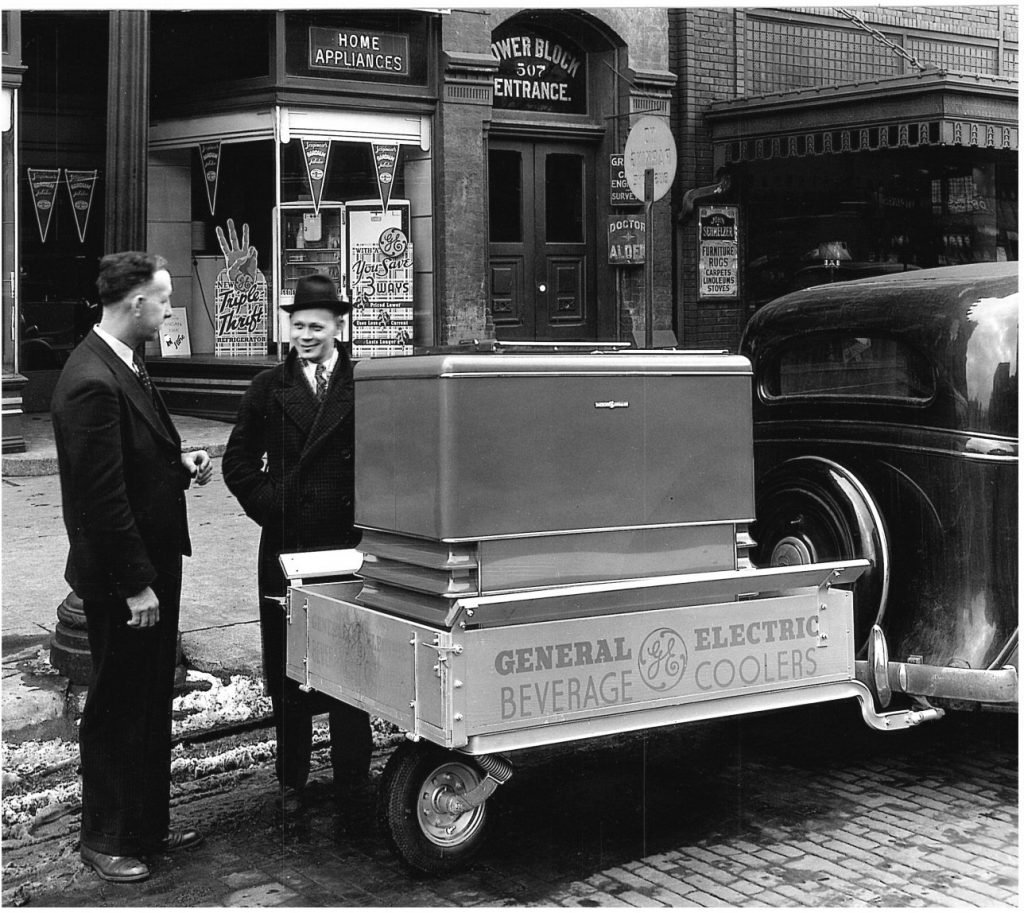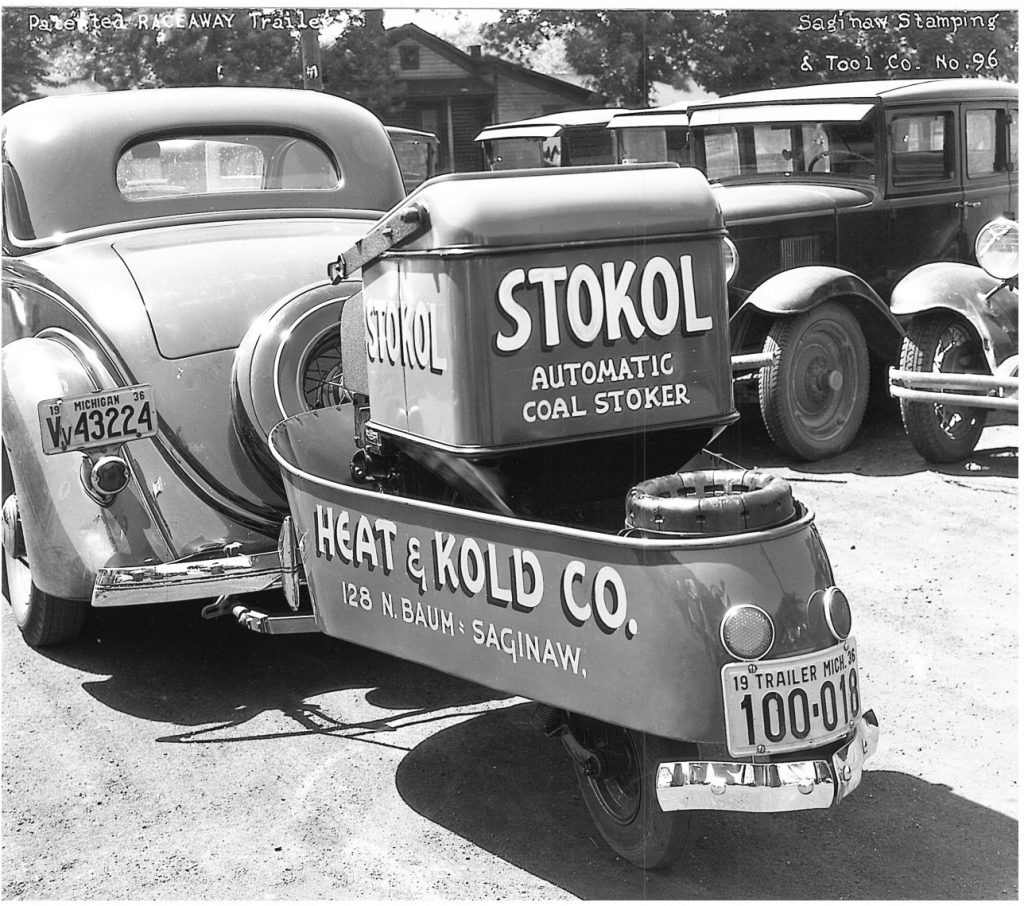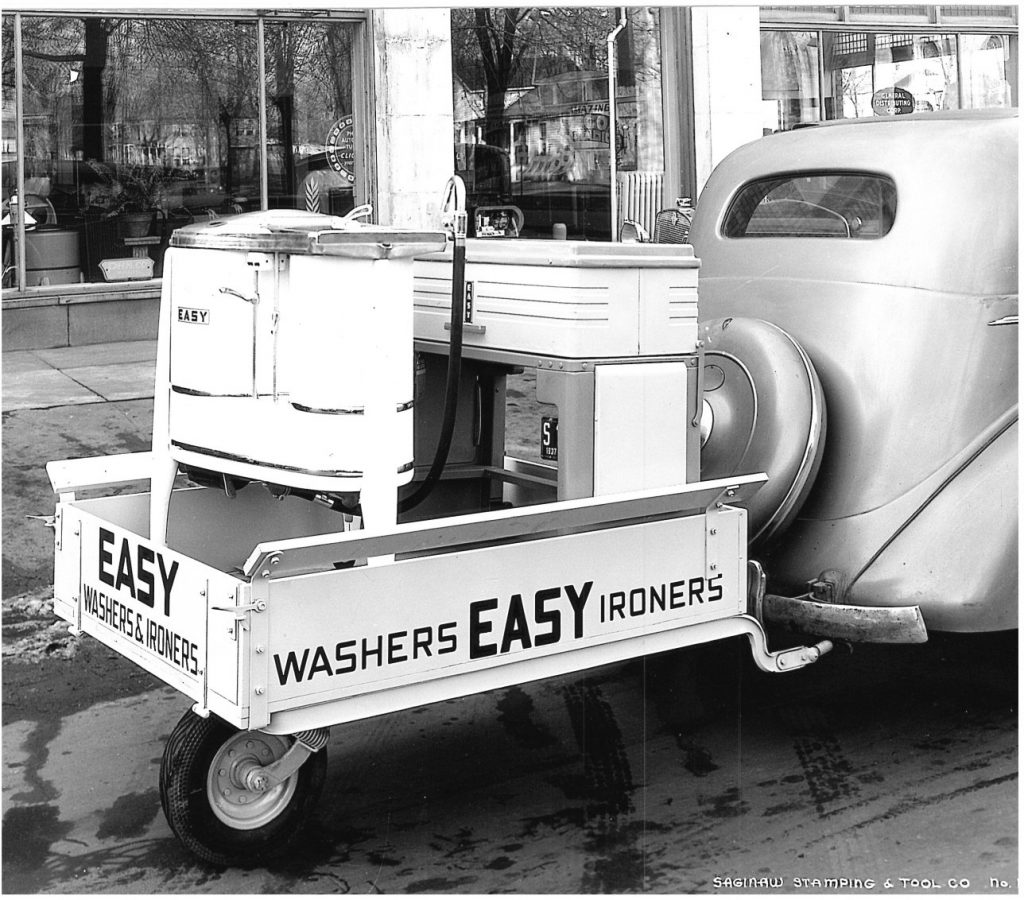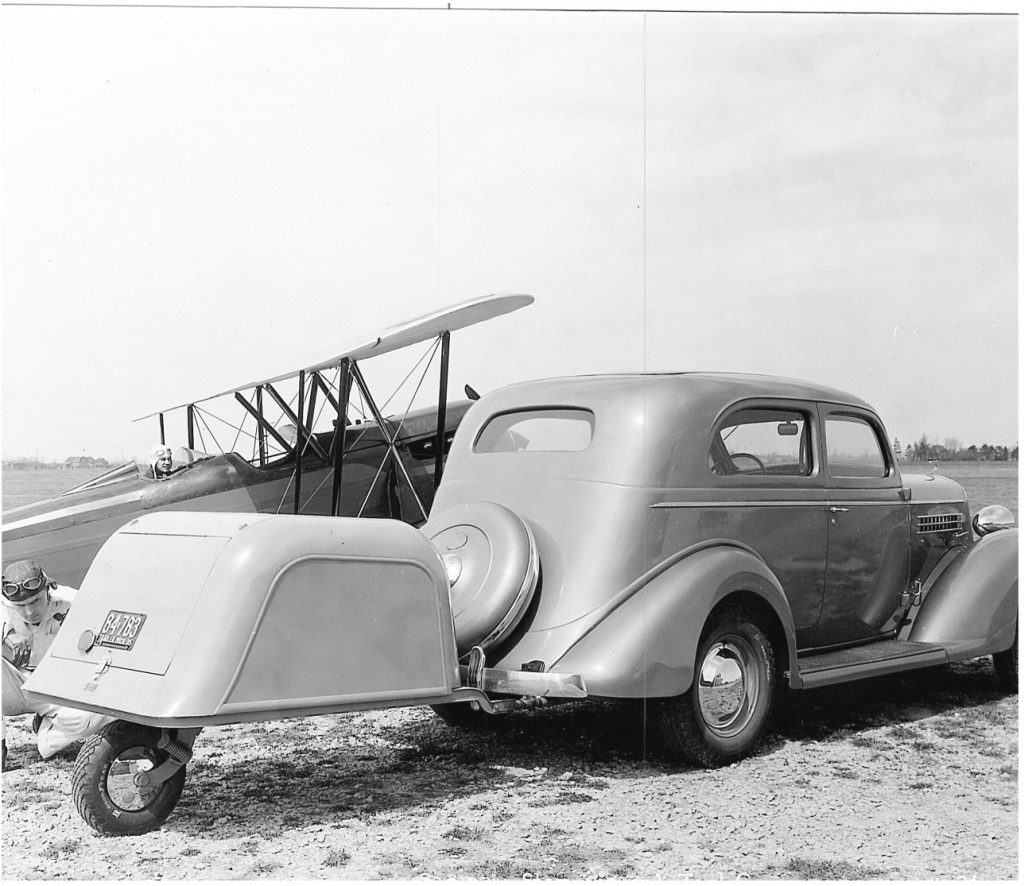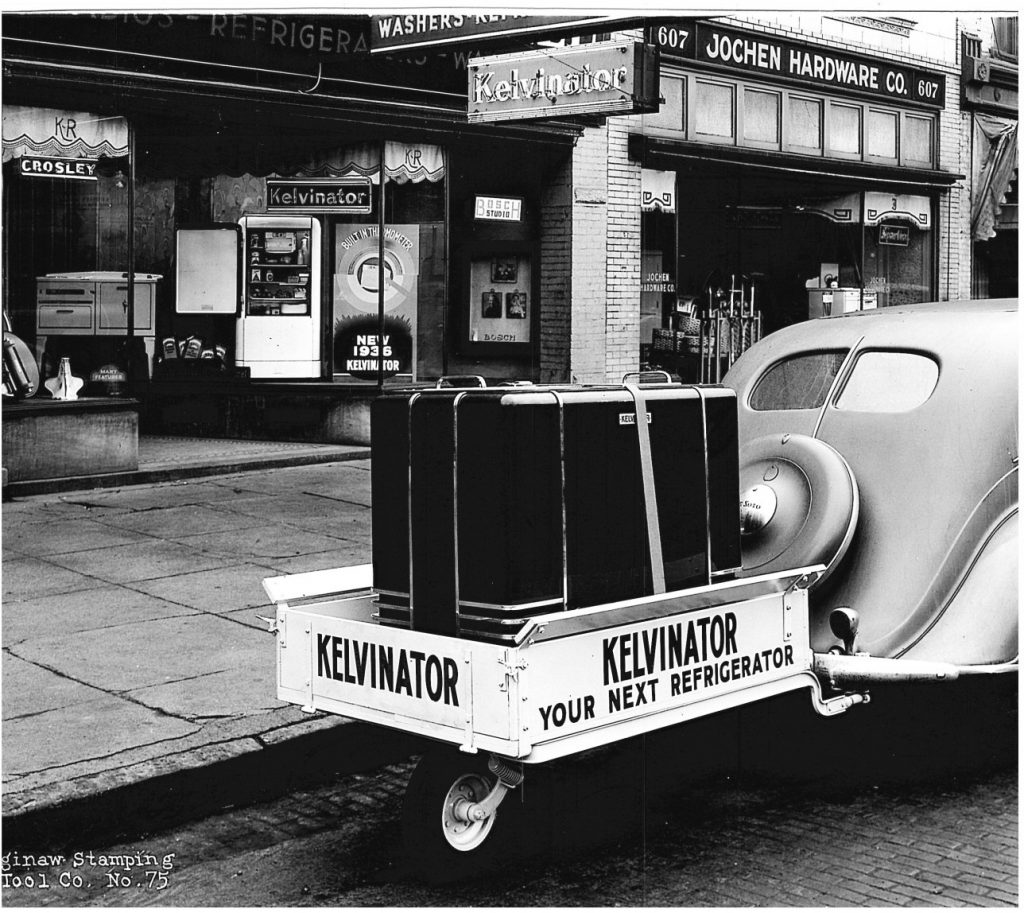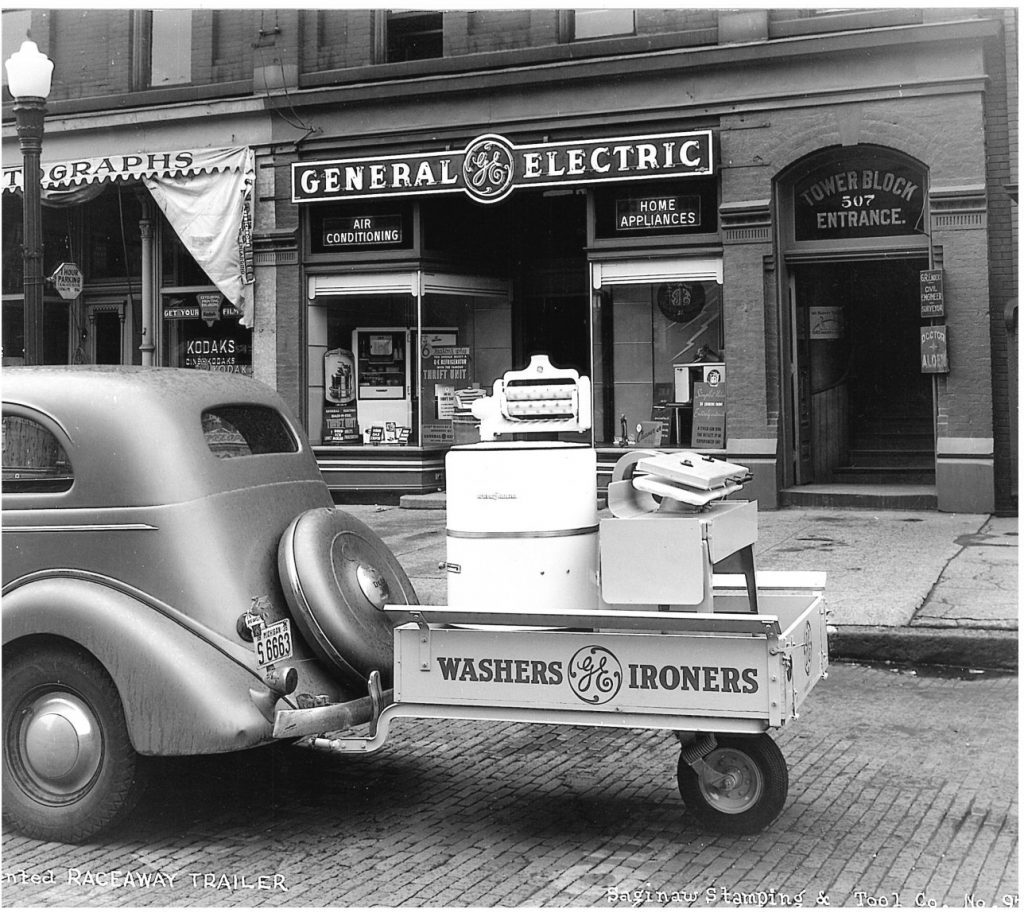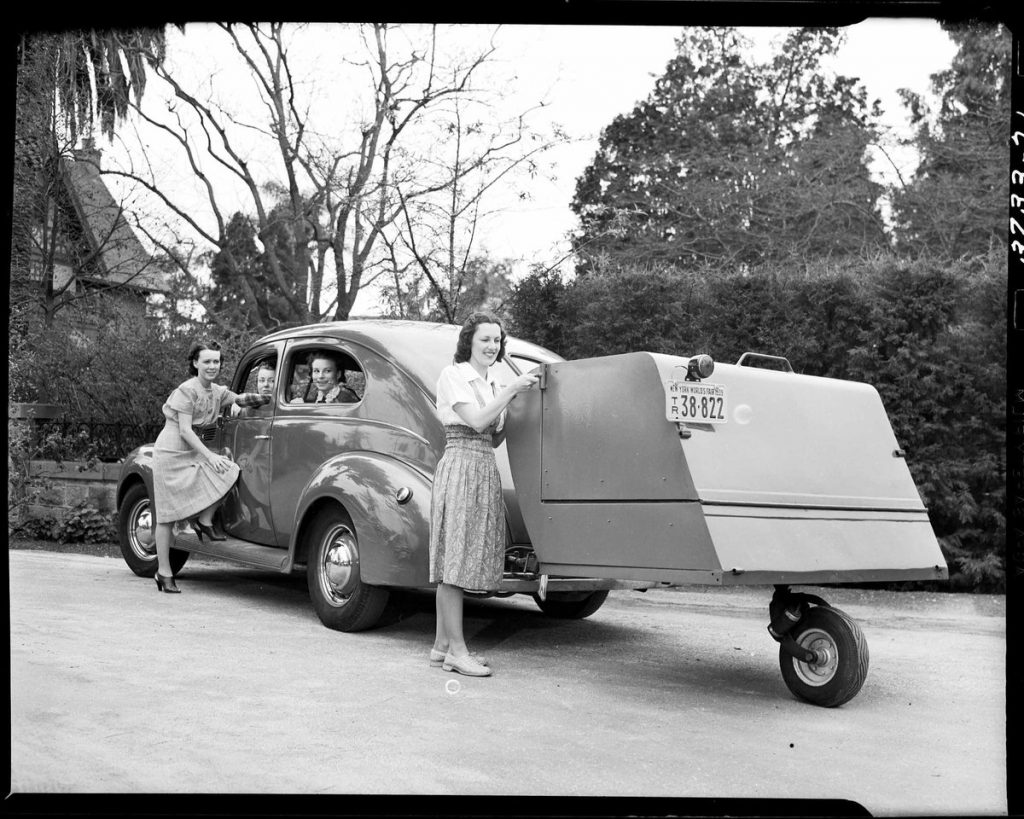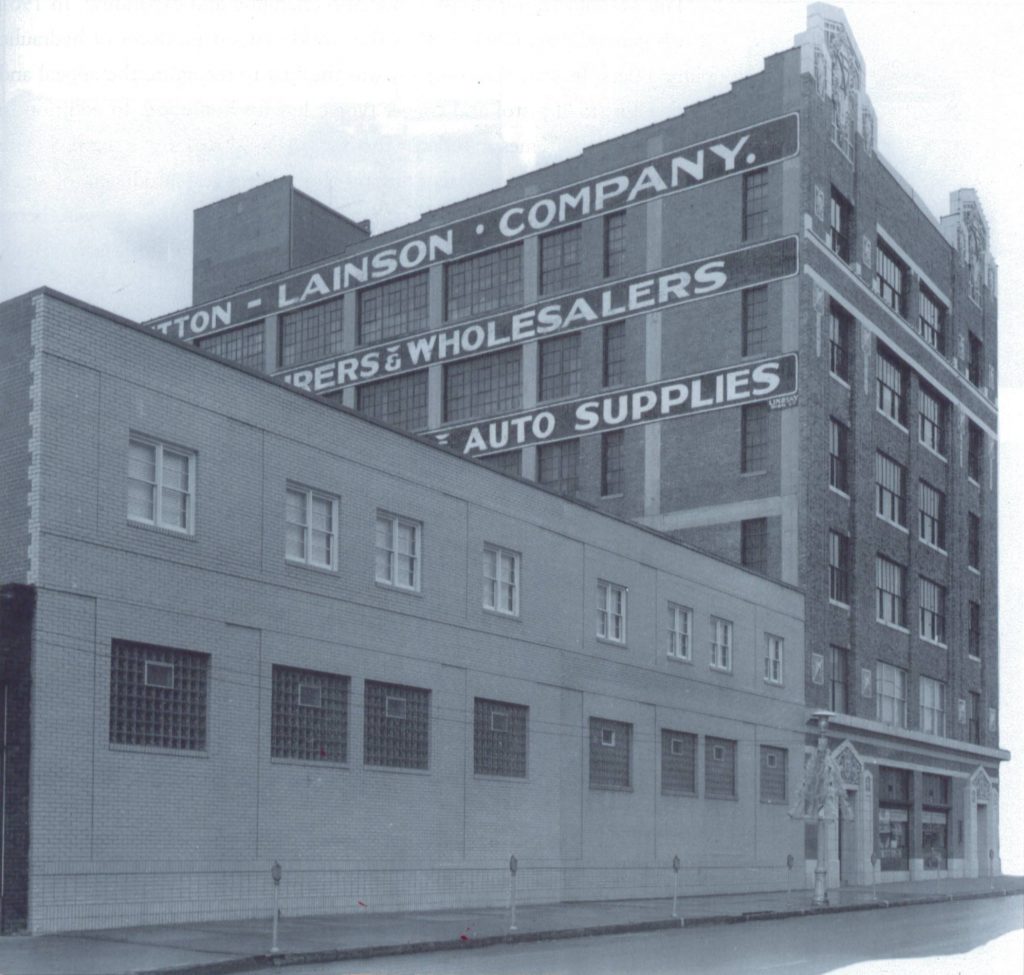Yocar: The Yocar trailers were built by the Dutton-Lainson Company. The company was founded in 1886, when William M. Dutton and two friends started a small harness and horse collar shop. Dutton-Lainson Company has remained a leader in the wholesale and manufacturing businesses and also expanded into printing and retailing. Today, the company’s five divisions are still operated by the same high standards of efficiency, ingenuity, and professionalism that gave the company its start long ago. The Yocar trailers were retailed by Sears as the “Cross Country” One Wheeler prior to the trailers we know now as Sears Allstate trailers. If you have any info or if you have this brochure, please drop me a line and tell me more.
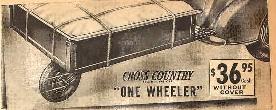 Allstate 1st Gen – CrossCountry: A single wheel trailer appeared in the Sears 1939 Spring catalog, evidently its debut there. This model was called the “Cross Country,” a brand name it shared with a two-wheel trailer shown on the same page. It appears to have been in production only a year and a half. The catalog described it as having “Live Rubber Spring” suspension, touted as being longer lasting than metal coil springs. Its tongue arrangement was totally different from all later models, being straight pieces of metal sticking out of the front of the chassis and connected to the bumper by means of ball-and-socket couplings. (Extension arms could be bought if you needed more clearance between the car and the trailer.) The trailer, rated at 750 pounds of cargo capacity, sold for $36.95. It was made in Niles, Ohio unlike the “Cross Country” two-wheeled trailer which was made in Connorsville, Indiana. They appear to be identical to the “Yocar” trailer made by the Youngstown Steel Car Corporation in Niles, Ohio, sharing the same frames and the same caster assembly with a rubber mount used as a coil spring would be. My conclusion is that that it was this company which supplied Sears with their first single-wheel trailers. The chassis can be described as having a “Y within a Square” frame, with one brace connecting the arms of the Y and two more supporting the base of the Y at the point where the caster wheel assembly connects. The body is formed of wood panels within a steel frame, with a removable tailgate. It measured 54″ long, 42″ wide, and 11″ high, including flare boards. The trailer could also be purchased without the box for $33.50. The same trailer appeared in the Fall 1939 and Spring 1940 catalogs. (Info based on article written by John LaTorre – A Short History of Allstate Single-Wheel Trailers)
Allstate 1st Gen – CrossCountry: A single wheel trailer appeared in the Sears 1939 Spring catalog, evidently its debut there. This model was called the “Cross Country,” a brand name it shared with a two-wheel trailer shown on the same page. It appears to have been in production only a year and a half. The catalog described it as having “Live Rubber Spring” suspension, touted as being longer lasting than metal coil springs. Its tongue arrangement was totally different from all later models, being straight pieces of metal sticking out of the front of the chassis and connected to the bumper by means of ball-and-socket couplings. (Extension arms could be bought if you needed more clearance between the car and the trailer.) The trailer, rated at 750 pounds of cargo capacity, sold for $36.95. It was made in Niles, Ohio unlike the “Cross Country” two-wheeled trailer which was made in Connorsville, Indiana. They appear to be identical to the “Yocar” trailer made by the Youngstown Steel Car Corporation in Niles, Ohio, sharing the same frames and the same caster assembly with a rubber mount used as a coil spring would be. My conclusion is that that it was this company which supplied Sears with their first single-wheel trailers. The chassis can be described as having a “Y within a Square” frame, with one brace connecting the arms of the Y and two more supporting the base of the Y at the point where the caster wheel assembly connects. The body is formed of wood panels within a steel frame, with a removable tailgate. It measured 54″ long, 42″ wide, and 11″ high, including flare boards. The trailer could also be purchased without the box for $33.50. The same trailer appeared in the Fall 1939 and Spring 1940 catalogs. (Info based on article written by John LaTorre – A Short History of Allstate Single-Wheel Trailers)
We found this while surfing Google/Books. This ad was in Popular Mechanics, July 1937.
[gallery_bank type=”images” format=”thumbnail” title=”false” desc=”false” responsive=”true” display=”all” sort_by=”sort_order” special_effect=”none” animation_effect=”fadeInDown” album_title=”False” album_id=”16″]

